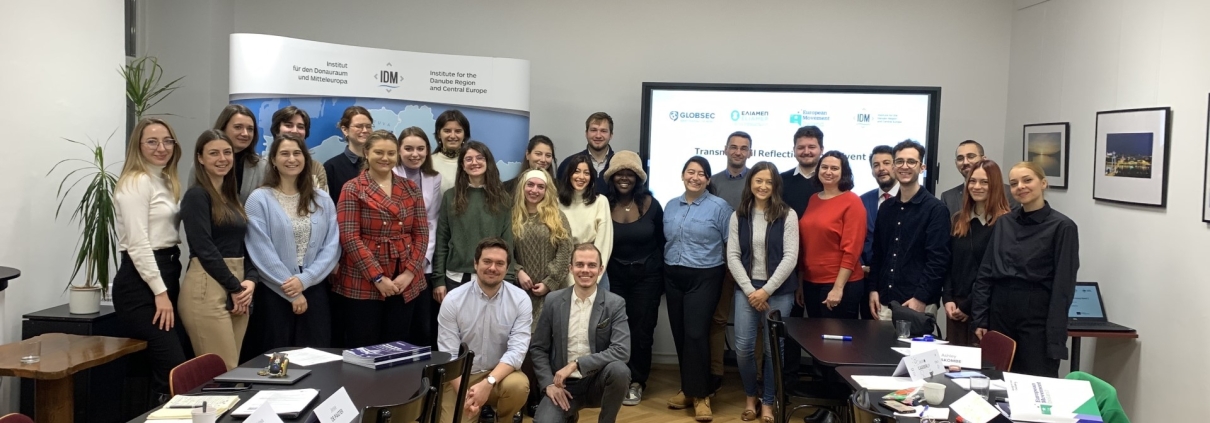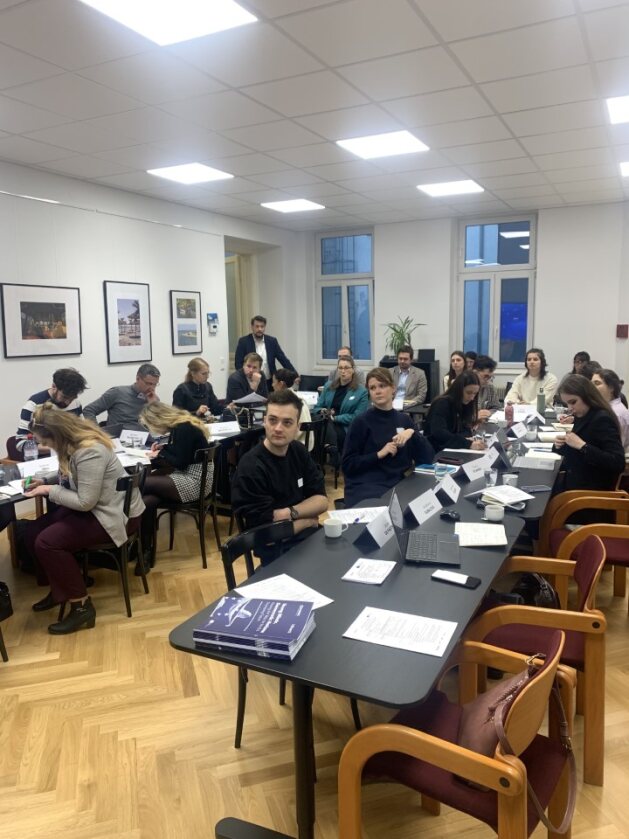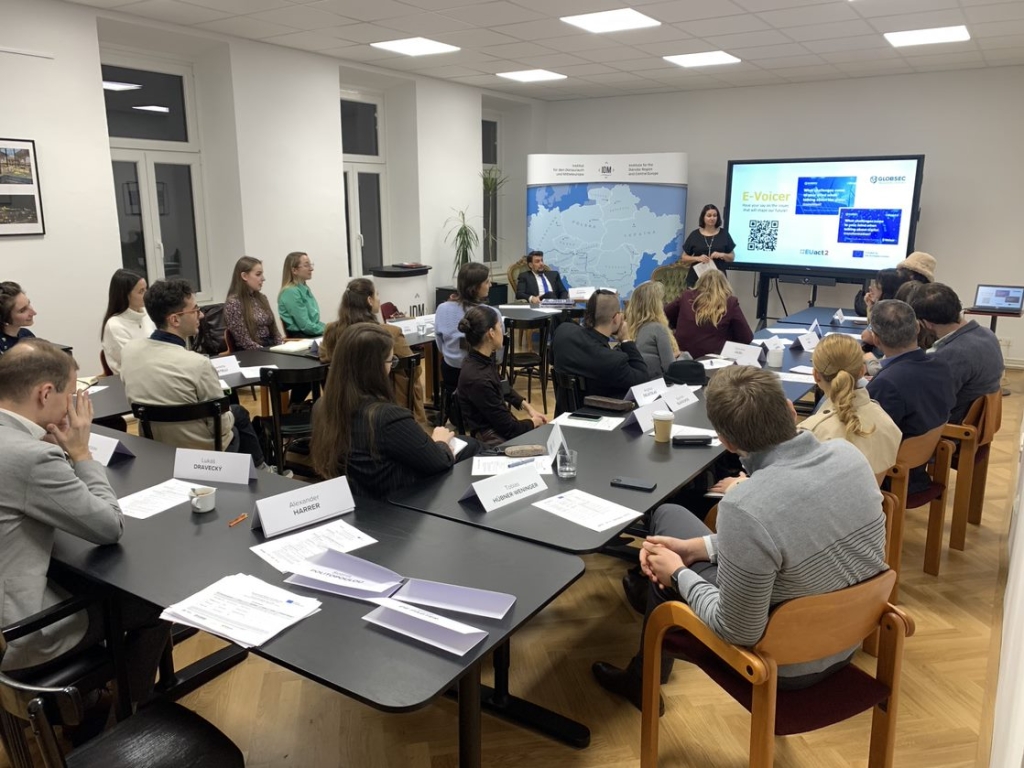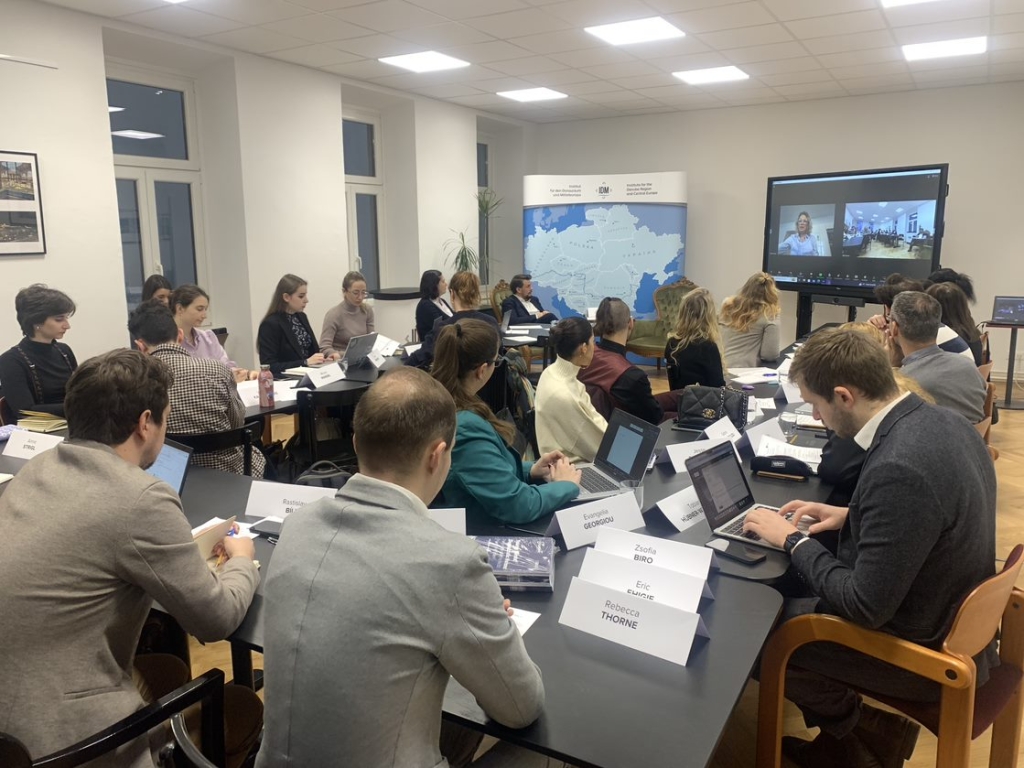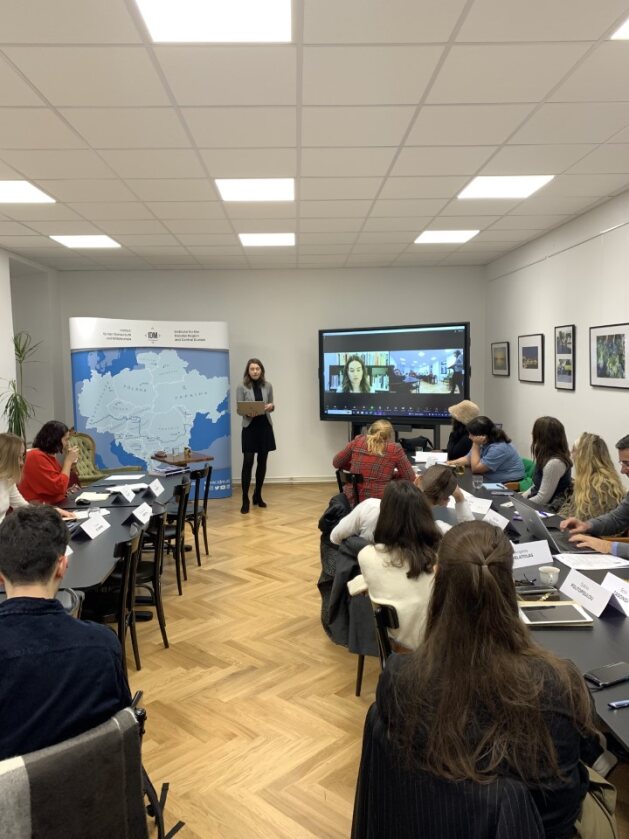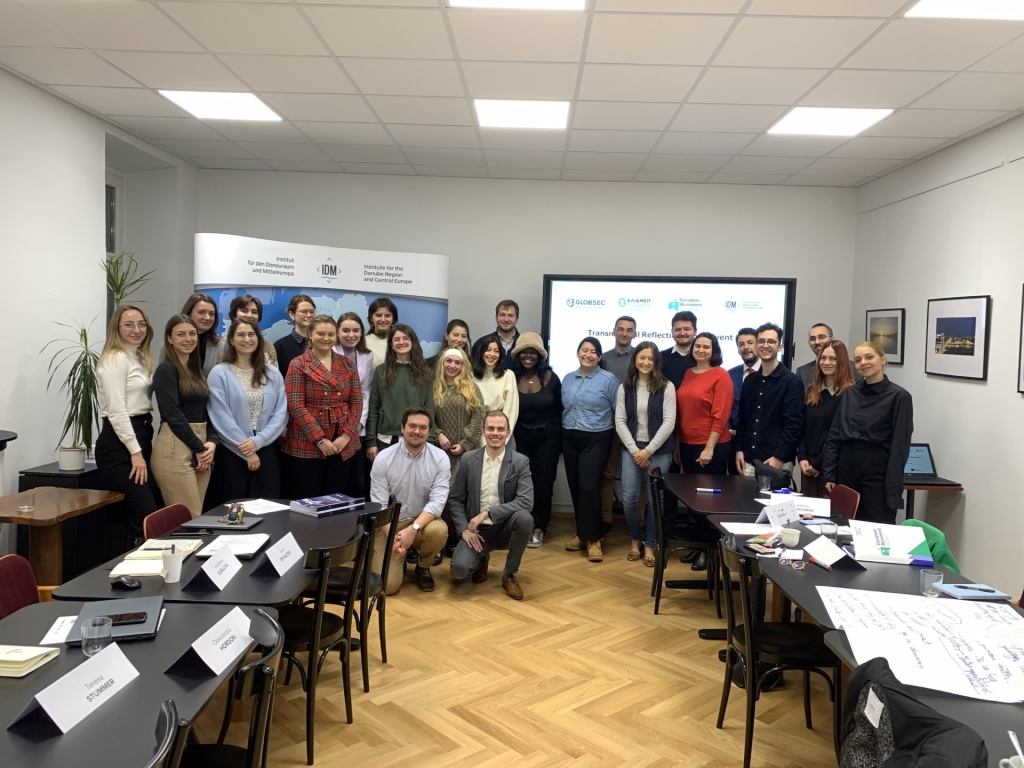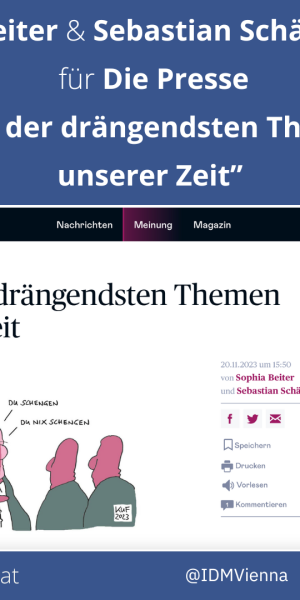Young Leaders Transnational Reflection Event in Vienna
As a part of the EUact2 Project, the Institute for the Danube Region and Central Europe (IDM), in partnership with GLOBSEC, ELIAMEP, and European Movement Ireland, held a three-day Transnational Reflection Group event from 15-17 November 2023 in Vienna, Austria. The event gathered young leaders and professionals from 11 Member States, including Austria, Bulgaria, Czech Republic, Germany, Greece, Hungary, Ireland, Italy, Netherlands, Poland, and Slovakia. The aim of the event was to reflect on pressing matters for the EU today and in the next 20 years, while working to draft recommendations for the EU and national policymakers.
The working groups discussed the topics of climate, migration, digital transformation, and EU enlargement. The interrelatedness of these themes was a recurring consideration, and participants were eager to think cross-disciplinarily. The discussion was enriched by four keynote speakers with expertise in thematically related fields. These speakers represented research institutions, national governments, and intergovernmental organizations, and were able to provide a broad perspective on the current condition of the EU as well as possible futures.
Katalin Tünde Huber, Head of Unit for EU Enlargement at the Federal Ministry for European and International Affairs, outlined enlargement as the EU’s most effective strategic tool. She warned that there is “no vacuum in geopolitics,” and stressed the importance of not losing sight of the Western Balkans. The philosophical question, “Where does Europe end?” remains an ongoing debate at the highest level of EU politics.
Erika Piirmets, Digital Transformation Adviser at e-Estonia (online), and Julia Haas, Adviser to the OSCE Representative on Freedom of the Media, emphasized the need for transparent regulation of digital technologies. Reliable information should be the foundation, and goal, of digital advancement. The speakers made important connections between digitization and human rights, reminding participants that “technology is for humanity’s sake and not the other way around.”
Daniel Huppmann, Senior Research Scholar at the International Institute for Applied System Analysis, imparted the cautiously optimistic message that we have all the technologies we need to reduce carbon emissions, but the challenge lies in social transition. He linked energy transition to questions of climate justice, explaining that equity must always be at the forefront of societal change. He left participants with the thought-provoking reminder that change is not only about outcome, but about whether the change process mirrors the equitable world for which we strive.
Judith Kohlenberger, post-doctoral researcher at the Institute for Social Policy, University for Economics and Business (WU), discussed the complexity of managing migration in a way that accounts for the interests of EU member states, sending countries, and the migrants themselves. Maintaining EU-wide standards and control of migration is a continual challenge. Bilateral agreements and externalization practices risk worsening human rights violations against migrants. In the midst of these debates, scholars and policy analysts have the capacity to contribute to decision-making processes by presenting an empirical basis for lawmaking, exposing harmful narratives, and contextualizing the issue at large.
Education, communication, and public engagement were recurring topics of discussion within each thematic issue. Through their recommendations, the young leaders and professionals emphasized the importance of reliable information access, inclusive democratic participation, and active citizenship.


